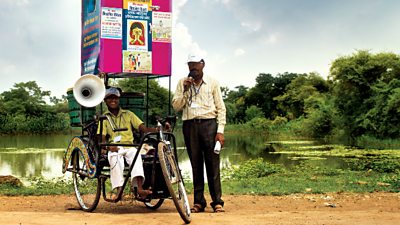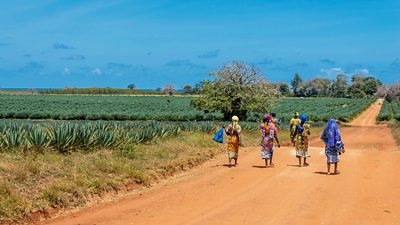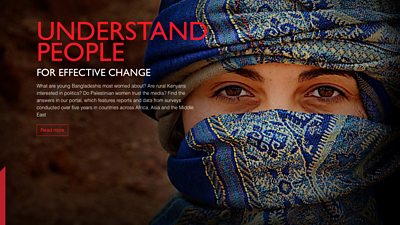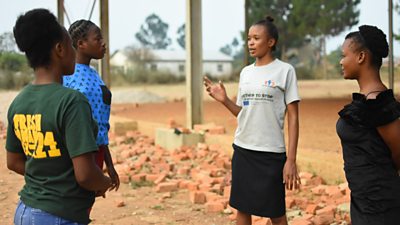Downloads
-
Natwampane - reducing gender based violence in Zambia Midline survey findings report
Publication: October 2022
±«Óãtv Media Action conducted a midline survey in two provinces of Zambia to gauge the reach of media outputs (radio programmes and PSAs) we support and to understand how audiences think about the issues addressed by the outputs. The survey shows that regular listeners report more progressive attitudes and have less support for violence.
Context
Gender based violence (GBV) is widespread in Zambia. According to the 2018 Zambian Demographic and Health Survey 21% of 15-19 year-old women and 34% of 20-24 year-old women have experienced physical violence after age 15. In most cases, perpetrators are current or former husbands and partners and women are significantly more likely (compared to men) to justify violence from husbands. Northern and Luapula provinces of the country record the highest prevalence of GBV, where four in five women believe that husbands beating their wives is justified for reasons such as burning the food or arguing with the husband.
The project
With funding from the European Union, in a programme led by the Government of Zambia and in partnership with World Vision, GIZ, Lifeline/Childline and Norwegian Church Aid, ±«Óãtv Media Action is implementing the 4.5 years long EU funded Natwampane (Coming Together in Bemba) project aimed at decreasing GBV in Northern and Luapula provinces. This project started in 2019 and it supports three stations to produce weekly radio magazine programmes, covering gender equality themes and signpost services provided by the state and NGO partners in the Natwampane consortium for those that are affected. PSAs were broadcast multiple times a day with the aim of ensuring wide reach and to consistently expose audiences to similar messages.
Research methodology
The midline study of 1003 face-to-face interviews was conducted in April and May 2022 with respondents randomly selected from the 15-49 age group across Northern and Luapula provinces. Data was weighted by age, sex and type of residence to ensure representativeness. Regression analysis which controlled for sex, age, residence and income has been used to show differences between regular listeners, occasional and non-listeners.
Key findings:
Very high reach
- 84% of the 15-49 audience reported that they had listened to either the radio discussion programmes or the PSAs, with 52% saying they had listened to the radio discussion programmes.
Programme stimulated discussion
- Over a third (37%) of listeners said they discussed the issues showcased in the programmes with friends and family.
Regular listeners reported women had more rights and could make more decisions
- Asked about nine rights, for example choosing a spouse or deciding the number of children to have, regular listeners on average ascribed more (mean of 6.4 rights) to women than those who listened occasionally (6.2) or did not listen at all (5.4).
- Questioned about nine statements on gender equality, including whether it is only for a man to initiate sex or if women should be able to decide what they wear, regular listeners reported egalitarian attitudes on more items (5.2) than occasional listeners (5.1) and those who did not listen at all (4.7).
Regular listeners showed more progressive attitudes
- Regular listeners of the Natwampane radio discussion programme reported more progressive attitudes around sexual and gender based violence (SGBV) than non-listeners. When asked if husbands were justified in hitting or beating their wives for burning the food, neglecting the children, arguing, or refusing to have sexual intercourse, a higher proportion of non-listeners (83%) and occasional listeners (69%) thought that at least one of these reasons justified violence compared to regular listeners (56%) of Natwampane.
Regular listeners were more likely to report SGBV when presented with scenarios
- Through the use of vignettes, regular listeners compared to non-listeners were more likely to say that they would report incidents of early marriage and SGBV.
Gender norms still entrenched
- There was no difference between regular listeners and the rest of the population in their response to gender norms, such as ‘women are better off staying silent when beaten to preserve their home’.
Key implications
The research has implications for our ongoing work in Zambia:
- The high reach figures show that broadcasting the radio programme and the PSAs in a strategic way to reach a range of audiences is advantageous.
- The findings show that localised programming addressing these issues can have an impact – driving discussion, shifting attitudes and increasing peoples’ confidence so that they feel they can report incidences of GBV.
- The findings demonstrate the benefits of working in a consortium with multiple actors in the GBV space – whose services can be signposted with confidence.
- However, the study’s findings on high reported levels of violence, support for violence and the lack of readiness to report violence, confirm the need for ongoing support in the two provinces and shows that changing deeply embedded beliefs in a society is only possible in the long term.
- The full data from this research also provides insights on the different attitudes and beliefs of various demographic groups in the two provinces. The data can therefore assist with the design and targeting of future media outputs and projects. For further information, please contact ±«Óãtv Media Action’s Senior Project Manager in Zambia caroline.elliot@zm.bbcmediaaction.org.
Our research library
-

Long reads
Read our comprehensive research reports of the evidence behind our work. All of our publications are freely available to download. -

Short reads
At a glance, explore key findings and evidence behind our work. All of our publications are freely available to download. -

By country
Explore our findings and analysis country by country. All of our publications are freely available to download. -
 What are young Bangladeshi's most worried about? Are rural Kenyans interested in politics? Do Palestinian women trust the media? Find the answers in our data portal (last updated 2020).
What are young Bangladeshi's most worried about? Are rural Kenyans interested in politics? Do Palestinian women trust the media? Find the answers in our data portal (last updated 2020).
